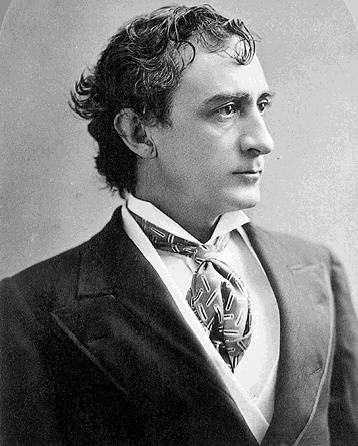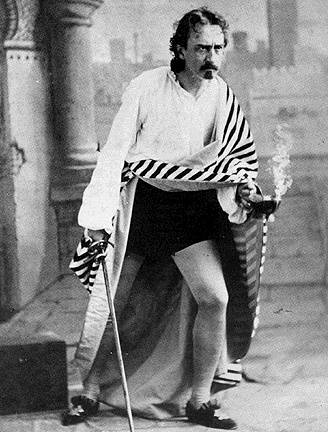Edwin Booth - Actor: Difference between revisions
No edit summary |
(changed caption on photo to reflect institution new name) |
||
| (3 intermediate revisions by 2 users not shown) | |||
| Line 1: | Line 1: | ||
'''<font face = arial light> <font color = maroon> <font size = 3>Unfinished History</font></font> </font>''' | |||
[[Image:perfarts$edwin-booth-photo.jpg]] | [[Image:perfarts$edwin-booth-photo.jpg]] | ||
Edwin Booth, actor. | '''Edwin Booth, actor.''' | ||
EDWIN BOOTH, actor (1833-1893) Considered the finest Shakespearean performer of the 19th century, Edwin Booth came to San Francisco in 1852 with his actor father Junius Brutus Booth Sr. and brother Junius Brutus Jr. (A third brother, John Wilkes Booth, became infamous as the assassin of President Abraham Lincoln.) Booth honed his craft in San Francisco's vaudeville houses and minstrel shows. Between 1850 and 1860, Shakespeare was the city's most popular playwright and 22 of his 38 plays were given repeatedly. Booth was a frequent participant, even taking these works to the Sierra mining camps. Later celebrated for his brilliant rendition of Hamlet, he first portrayed the moody Dane on a local stage in 1853. | |||
[[Image:perfarts$edwin-booth-acting.jpg]] | [[Image:perfarts$edwin-booth-acting.jpg]] | ||
Edwin Booth on stage. | '''Edwin Booth on stage.''' | ||
''Photos: Museum of Performance + Design'' | |||
[[THE CHRISTENSEN BROTHERS AND THE SAN FRANCISCO BALLET |Prev. Document]] [[Bert Williams - Vaudevillian |Next Document]] | |||
[[ | [[category:Performing Arts]] [[category:1850s]] [[category:1860s]] | ||
Latest revision as of 12:57, 7 June 2020
Unfinished History
Edwin Booth, actor.
EDWIN BOOTH, actor (1833-1893) Considered the finest Shakespearean performer of the 19th century, Edwin Booth came to San Francisco in 1852 with his actor father Junius Brutus Booth Sr. and brother Junius Brutus Jr. (A third brother, John Wilkes Booth, became infamous as the assassin of President Abraham Lincoln.) Booth honed his craft in San Francisco's vaudeville houses and minstrel shows. Between 1850 and 1860, Shakespeare was the city's most popular playwright and 22 of his 38 plays were given repeatedly. Booth was a frequent participant, even taking these works to the Sierra mining camps. Later celebrated for his brilliant rendition of Hamlet, he first portrayed the moody Dane on a local stage in 1853.
Edwin Booth on stage.
Photos: Museum of Performance + Design


